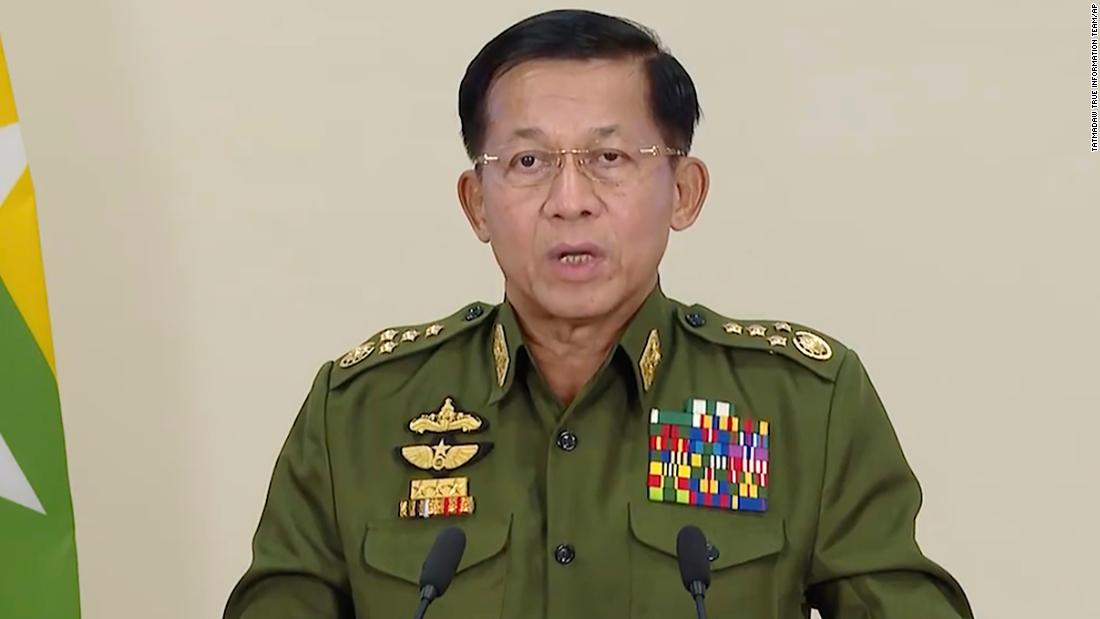
About 23,314 prisoners will be amnestied and released on Union Day, a national holiday observing the reunification of the country, General Min Aung Hlaing said in a statement. It is unclear for which crimes the prisoners were convicted.
While mass release of prisoners is common on national holidays in Myanmar, this is the first amnesty of the new junta, which seized power in a coup on Feb. 1, ousting democratically elected leader Aung San Suu Kyi and detaining key government officials.
The military justified control of the country by claiming widespread voting irregularities in the November 2020 elections, which gave Suu Kyi’s National League for Democracy (NLD) a second consecutive victory.
On Friday, the Assistance Association for Political Prisoners (AAPP) in a statement expressed “grave concern” that the amnesty “clears room for the detention of political prisoners”.
In addition to release, inmates serving sentences for crimes committed before January 31, 2021 for each crime will also receive a reduction in their sentences, the military statement said.
In his speech, Min Aung Hlaing said the prisoner amnesty was part of an effort to build a “democratic country with disciplines”.
There is no indication that Suu Kyi or any other ministers or officials detained during the coup will be released as part of the amnesty. Nor is it unlikely that the amnesty will diminish the protesters’ anger towards the military generals.
Protests and campaigns for civil disobedience continued in villages and towns across the country on Friday. Videos and live streams posted online showed that various groups marched in the largest city of Yangon, including medical personnel and football fans.
Large meetings are also expected at the US, Chinese and British embassies in Yangon.
The rallies so far have been largely peaceful, but the police are using water cannons against protesters. Police have also faced allegations that they have deployed live rounds.
A young woman named Mya Thweh Thweh Khine is in critical condition at a hospital in the capital, Naypyidaw, on Friday morning with a gunshot wound to the head, a source with direct information about the victim told CNN.
Video of the incident circulating online showed a young woman suddenly falling to the ground while taking cover from a water cannon at a protest.
Experts from the Crisis Evidence Lab of the rights group Amnesty International said footage was taken near a protest in Naypyidaw on Feb. 9, in which a police officer is holding a locally made variant of an Uzi submachine gun.
The rights group said the footage was taken from a location near the Thabyegone roundabout, just across the road where the young woman was shot in the head.
Amnesty said it has verified the coordinates of the image showing an officer holding a “Myanmar-made BA-94 or BA-93 Uzi clone”. CNN has not been able to independently verify the image.
The findings directly contradict the military’s claims that no lethal weapons were used during protests, Amnesty said.
Myanmar’s military posted on its Facebook page on Feb. 10 that it was only using anti-riot weapons in the Thabyegone Roundabout protest and was investigating reports that two protesters had been injured.
Sam Dubberley, head of Amnesty International’s Crisis Evidence Lab, said in a press release, “This young woman’s serious injuries were caused by the Myanmar police firing live ammunition directly at peaceful protesters.”
Mya Thweh Thweh Khine has since become a symbol of the protests, with protesters holding portraits of her image as they march.
On Thursday, Min Aung Hlaing warned protesters, including a large cross-section of society, including monks and a growing number of public workers, to urge them to return to work.
“Those who are absent from their duties are requested to return immediately to their duties for the interests of the country and the people without focusing on the emotion,” he said.
Min Aung Hlaing accused the recent absenteeism of government employees of harassment by “unscrupulous persons,” in a statement by the ruling military’s official intelligence service.
In response to the ongoing protests, the country’s military has sought to restrict access to the internet and news services, as well as float a possible new cybersecurity law that observers fear could further restrict the flow of information.
On Wednesday, US President Joe Biden announced that the US would continue to sanction Myanmar’s military leaders after last week’s coup.
In brief remarks, the president said he had approved a new executive order that would allow the US to “immediately sanction the military leaders who led the coup on their business interests and close relatives.” He said they would identify the targets of those sanctions this week.
Biden also called on the military junta to release detained protesters and civilian leaders, including Suu Kyi and Win Myint, and to stop their crackdown on protesters.
CNN’s Helen Regan contributed to the reporting.